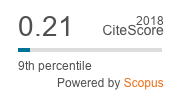Intencionalidade e Linguagem (II):
Algumas Considerações sobre Tomaselo, Searle e Dennett
Mots-clés :
Filosofia da mente; Flosofia da linguagem; Psicologia, Intencionalidade, Linguagem verbal, Tomasello, Searle, DennettRésumé
Em continuidade a nossa investigação da evolução de processos simbólicos humanos, analisamos a relação entre os conceitos de intencionalidade e linguagem verbal na Teoria da Aquisição da Linguagem Baseada no Uso (Tomasello), na Teoria dos Atos Ilocucionários (Searle) e na Teoria dos Sistemas Intencionais (Dennett), buscando identificar o seu papel na determinação da cognição humana. A três teorias destacam os repertórios simbólicos como o fundamento da cognição humana; dentre os quais, a linguagem verbal tem um papel relevante, embora, não-exclusivo. A diferenciação entre estas teorias reside: (i) nos processos (biológicos e sócio-históricos) por elas identificados para a aquisição e o desenvolvimento dos repertórios simbólicos, inclusive, da linguagem verbal; e (ii) na relevância atribuída à intencionalidade para a justificação destes processos.
Téléchargements
Références
Allan, S. (2007). Intencionalidade, linguagem e análise do
comportamento (Unpublished master´s thesis). Retrieved
fromhttp://www.ufpa.br/ppgtpc/dmdocuments/MESTRADO/
SylvioAllan.pdf
Allan, S. (2012). Uma interpretação intencionalista da imagem:
percepção e comunicação visuais humanas (Unpublished
doctoral dissertation).Universidade Federal do Pará.
Retrievedfromhttp://www.ufpa.br/ppgtpc/dmdocuments/
DOUTORADO/tese_doutorado_sylvio.pdf
Allan, S., & Souza, C. B. A. (2009). O modelo de Tomasello sobre
a evolução cognitivo-linguística humana. Psicologia: Teoria
e Pesquisa, 25, 161-168.
Allan, S., & Souza, C. B. A. (2011). Intencionalidade em Tomasello,
Searle, Dennett e em abordagens comportamentais da cognição
humana. Psicologia: Teoria e Pesquisa, 27, 241-248.
Allan, S., & Souza, C. B. A. (2015). Intencionalidade e linguagem
(I): Algumas considerações sobre Tomasello e Skinner. Acta
Comportamentalia, 23, 185-197.
Austin, J. L. (1962). How to do things with words. Oxford:
Clarendon Press.
Bakeman, R., & Adamson, L. B. (1984). Coordinating attention to
people and objects in mother-infant and peer-infant interaction.
Child Development, 55, 1278-1289.
Brentano, F. (1973). Psychology from an empirical standpoint.
London: Routledge and Kegan Paul. (Trabalho original
publicadoem 1874)
Dennett, D. C. (1971). Intentional systems. The Journal of
Philosophy, 68, 87-106.
Dennett, D. C. (1987). The intentional stance. Cambridge, MA:
The MIT Press.
Dennett, D. C. (1994).The role of language in intelligence. In J.
Khalfa (Ed.), What is intelligence? (pp. 161-178). The Darwin
College Lectures, Vol. 6. Cambridge, England: Cambridge
University Press.
Dennett, D. C. (1997). Kinds of minds: Towards an understanding
of consciousness. New York: Basic Books.
Searle, J. R. (1969). Expressions, meaning, and speech acts. In
J. R.Searle (Ed.), Speech acts: An essay in the philosophy
of language (pp. 22-53). Cambridge, England: Cambridge
University Press.
Searle, J. R. (1979). A taxonomy of illocutionary acts. In J. R.Searle
(Ed.), Expression and meaning: Studies in the theory of speech
acts (pp. 1-29).Cambridge, England: Cambridge University
Press.
Searle, J. R. (1983). Intentionality: An essay in the philosophy of
mind. Cambridge, England: Cambridge University Press.
Searle, J. R. (1994).Consciousness, intentionality, and the
‘background’. In J. R. Searle (Ed.),The rediscovery of the mind
(pp. 175-196). Cambridge, MA: The MIT Press.
Tomasello, M. (1999). The cultural origins of human cognition.
Cambridge, MA: Harvard University Press.
Tomasello, M. (2003). Constructing a language: A usage-based
theory of language acquisition. Cambridge, MA: Harvard
University Press.
Tomasello, M., & Call, J. (1997). Human cognition. In M.
Tomasello, & J. Call, (Eds.), Primate cognition (pp. 401-429).
New York: Oxford University Press.
Tomasello, M., Carpenter, M., Call, J., Behne, T., & Moll, H.
(2005a). Understanding and sharing intentions: The origins of
cultural cognition. Behavioral and Brain Sciences, 28, 675-691.
Tomasello, M., Carpenter, M., Call, J., Behne, T., & Moll, H.
(2005b). In search of the uniquely human. Behavioral and
Brain Sciences, 28, 721-727.
Tomasello, M., Kruger, A. C., & Ratner, H. H. (1993). Cultural
learning. Behavioral and Brain Sciences, 16, 495-552.



